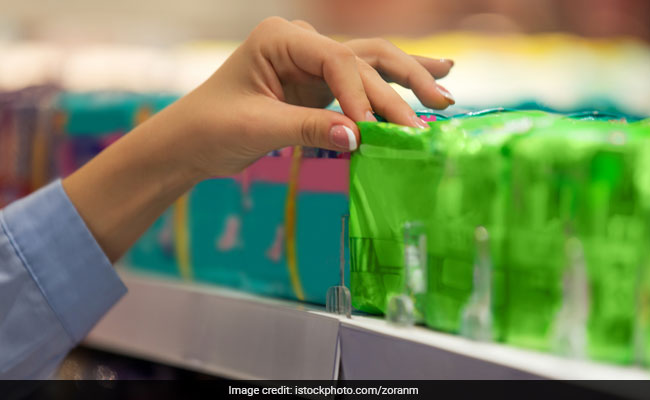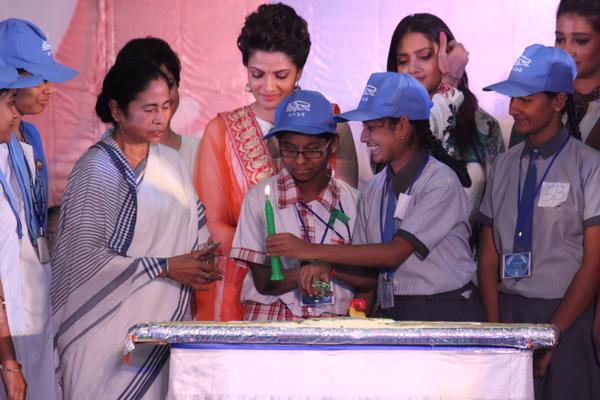The historic Kanyashree Project, launched by the West Bengal Chief Minister Ms Mamata Banerjee in 2013 is now bearing the fruits of her outstanding farsightedness.
The Chief Minister said that girls are precious assets of the society and in future they will lead the country. She laid stress empowering the future citizens of the nation through proper education. She appealed to the parents not to marry off minor girls only to achieve social security; they should be allowed to study and build their future.
About the scheme
Launched on 1st October, 2013, the response had been so huge that within a year 16 lakh girls were registered under the scheme. Till date 22 lakh girls have been registered under the scheme and the government plans to extend the benefit to 40 lakh girls in the next two years.
In terms of simplicity, transparency and outreach, Kanyashree scheme is unique and first of its kind in India. Not only can an applicant apply for the scheme in her school, madrassah, vocational training centre or wherever she is studying, for transparency purpose, the entire scheme can be accessed online on a dedicated website – www.wbkanyashree.gov.in
UNICEF partners West Bengal Government for the implementation of Kanyashree
UNICEF (United Nations Children’s Fund) has become a partner of the West Bengal Government for the implementation of Kanyashree scheme. The objective is to instill confidence among them, to encourage their education, and to discourage their early marriage.
The partnership between UNICEF and West Bengal Government is not a superficial involvement but a technical partnership. UNICEF has decided to hire a premium agency with the best expertise in India to do a “baseline survey” regarding the scheme. This will be followed by an “impact assessment”, to be funded by UNICEF.
Kanyashree scheme receives international recognition
Department for International Development ,United Kingdom and UNICEF had selected the scheme for presentation at the”Girl Summit” 2014 to be held at London. The State Government has been invited to make a presentation of the scheme before a global audience.
Union Women and Child Development Minister praises Kanyashree scheme
Union Minister of Women and Child Development praised the Kanyashree scheme of West Bengal Government during a reply on the motion for stricter measures to curb the rising crimes against women. During her speech she said that the Kanyashree scheme was an excellent idea.
The first Kanyashreee Dibas
The first Kanyashreee Dibas was celebrated on August 14, 2014 in every block of the State. On the day, The Chief Minister felicitated fifty girl students for their achievement in different competitions, as well as distributed prizes to three best districts, three best schools and three best colleges for their contribution to the Kanyashree scheme.
Film on Kanyashree by Oscar-winning filmmaker
After international accolades, recognition by UNICEF and invitation to the Girl Summit 2014 in London, the Kanyashree scheme has also been portrayed in a short-film made by an Oscar-winning director on a young girl’s fight to stave off marriage and help her family make ends meet and was screened at the Kolkata International Film Festival. Made by Oscar winning American short filmmaker Megan Mylan, the film, ‘After My Garden Grows’, was about a beneficiary of the West Bengal Government’s Kanyashree and Sabala schemes that are aimed at empowering the women of rural Bengal.
Kanyashree impact: School dropout rate among girls falls in Bengal
According to data from the National Sample Survey 2014, the school dropout rate among girls in the State has come down. The report says that while the National average for school dropout rate for girls is 3.23%, the same for the State is 1.28%. In the 2009 survey, the figure stood at 2.34% for Bengal.
National honours for Kanyashree
The Department of Woman Development and Social Welfare, Government of West Bengal has been awarded Silver Medal for the “Kanyasshree Prakalpo” in the Category of “Outstanding Service in Citizen-Centric Service.”
Bottomline
Using Kanyashree as a weapon, the state government is now urging the police and non-government organizations to go ahead to the micro level to generate awareness so that such crimes are minimised in the state. In a special training programme for police personnel jointly organized by the district police, district legal services authority (DLSA) and an NGO, the joint secretary emphasised on the utility of Kanyashree.
West Bengal is home to 88.34 lakh teenager girls as per the National Crime Record Bureau (NCRB). Most of these girls are vulnerable to child trafficking in the form of child marriage and other forms of coercion. Kanyasree project is an exclusive scheme to save the vulnerable girls. Police personnel are being explained on how to take action against trafficking of teenagers and prevent banes like child marriage.







